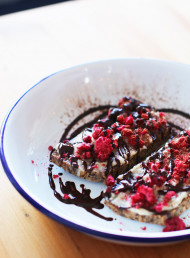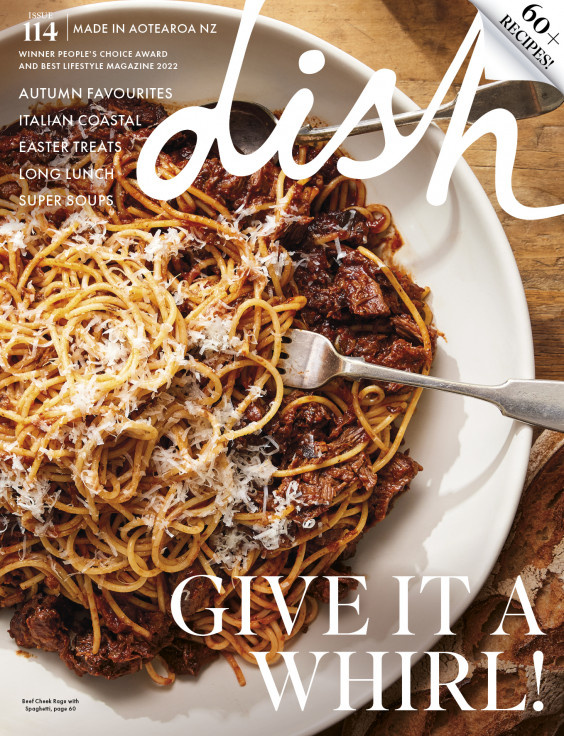Kylee Newton is The Modern Preserver
Photography by Phillippa Langley.
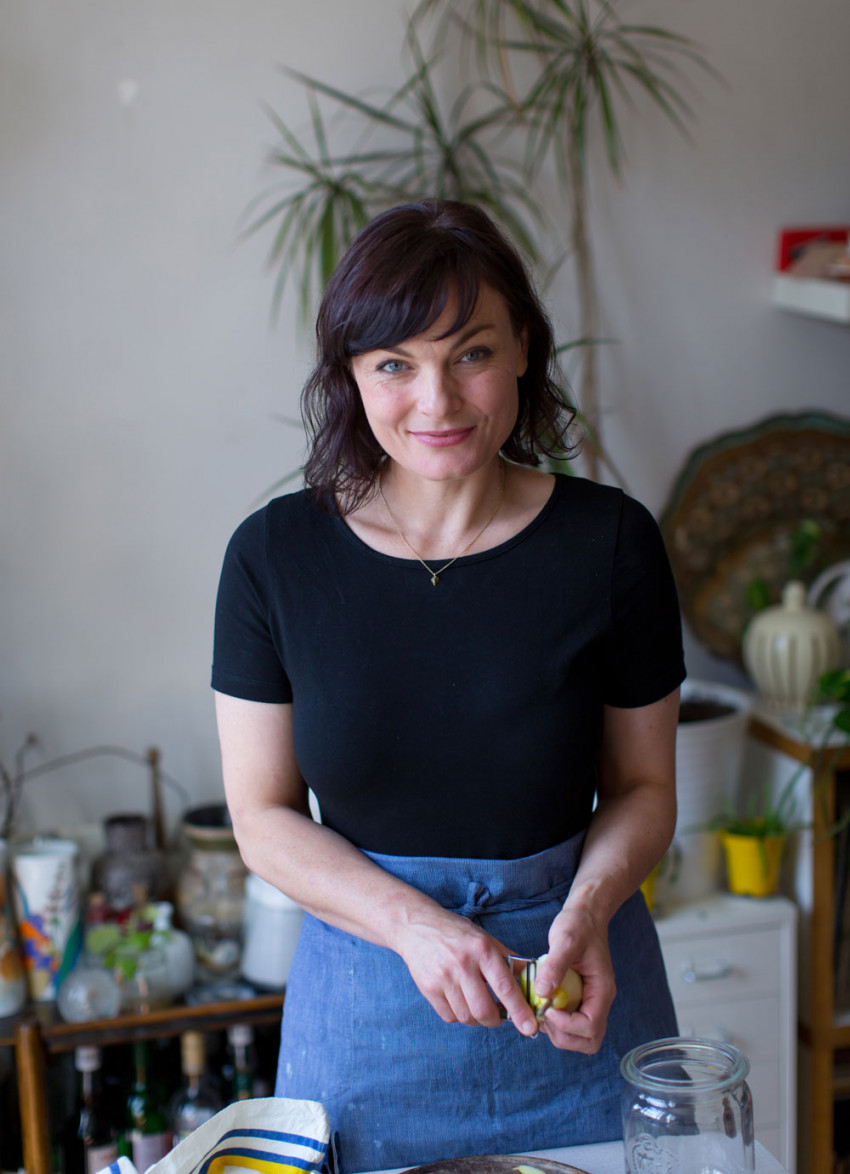
With its inventive flavour combinations and beautiful design, Kylee Newton's new recipe book The Modern Preserver is bringing a refreshing and welcome twist to the art of preserving.
Inspired to produce food that "embodied a 'Waste not, want not' philosophy", New Zealand-born Kylee Newton began making preserves under the name Newton & Pott to sell at London's Broadway Markets. While many are surprised to find that Kylee creates all her unique flavours of chutneys, jams and pickles from her home kitchen, she's passionate about producing food on a small, artisanal scale. This clearly hasn't stopped her making a name for herself – last year she released a beautiful cookbook, The Modern Preserver, filled with 130 recipes of interestingly flavoured chutneys, alcohol-infused jams as well as pickles and fermentations. Dish caught up with Kylee during the end of her short but sweet trip back to her hometown of New Plymouth.
What's happening food-wise in New Plymouth at the moment?
It’s changed since the last time I was here, three years ago. Ozone are here producing really good coffee beans. Out in Oakura, which is in Taranaki, there’s a great shop called Kin & Co who are stocking people like Fix and Fogg, Wellington Chocolate Factory and Six Barrel Soda. When I was in Wellington I went to visit all those guys – they’re doing amazing things. I like to keep a keen eye on what’s happening – we’re all handmade producers making it work and we should stick together. I’m excited that it is happening in New Zealand. It makes me think, ‘Maybe I should bring Newton & Pott over...'
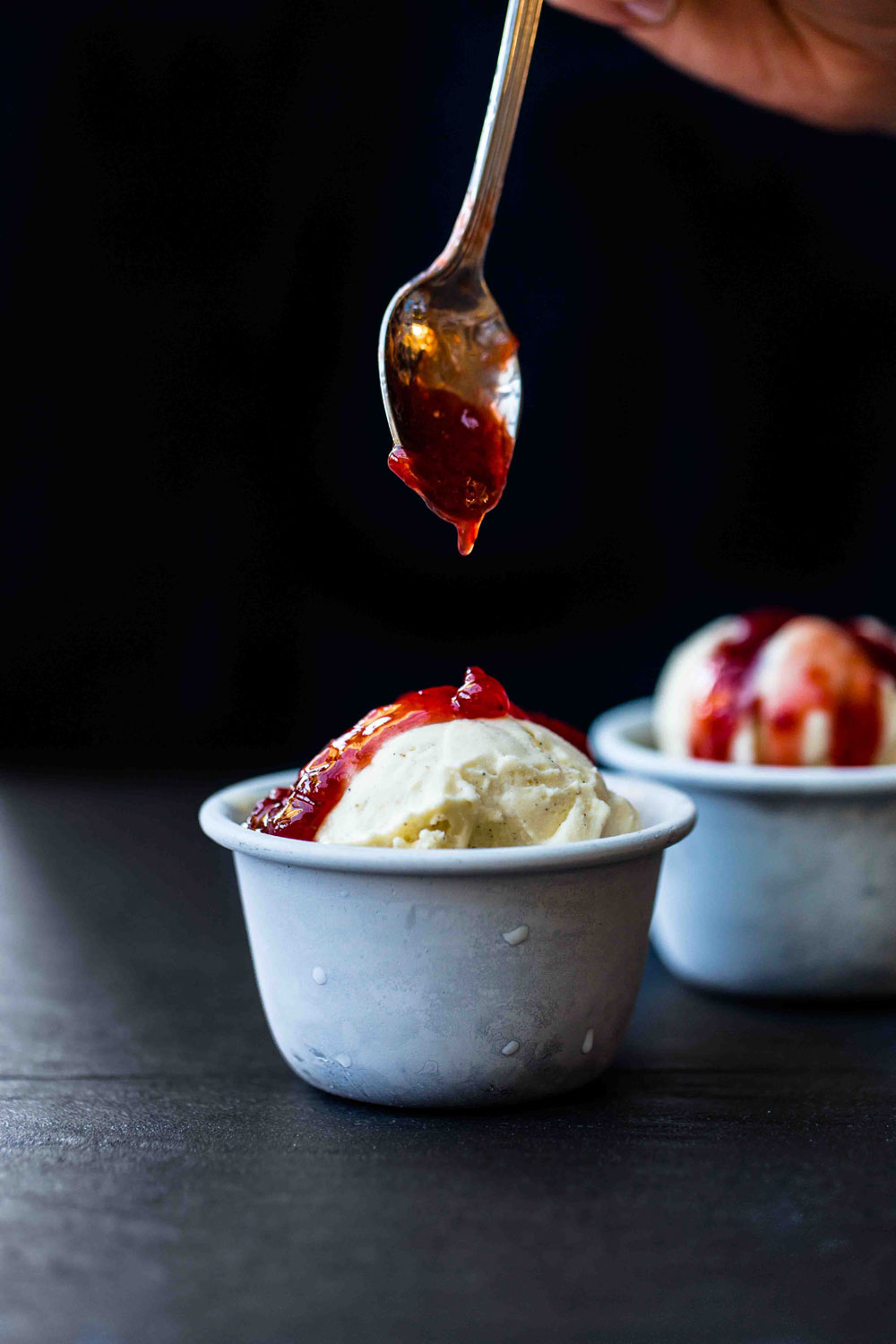
You should! What has the feedback about your book been like so far?
The book has been received incredibly well, I’m so excited. It launched in the UK last August and my editor was saying that it had its best sales through November, in the build up to Christmas. They’ve already put it forward for a reprint. Everyone seems to love it and see it as a contemporary look into these old-fashioned techniques. People also seem to think it’s really beautiful, like a work of art… Lucky I went to art school.
I see preserving as a very creative outlet for me – I really get creative when I’m making up recipes. I’m so passionate about it, it’s really taken over my life.
I’ve read about your apartment being filled with produce, jars and scents...
In the UK you can run a food business from your house, which is something you can’t do in New Zealand. I’ve heard that they are thinking of changing the laws here as it is stifling small businesses and start-ups. I’ve been very fortunate to be able the do that but I’m moving into a kitchen when I get back to London. Well, I have a space and I have to make it into a kitchen. That was an exciting thing about visiting Wellington and seeing the Six Barrel Soda team making their soda in such a small space – I just love what they’re doing.
Is that something you’d like to have – a cafe where you can use your preserves?
Ideally it would be great to have somewhere where I could also cook for people. My big thing is food waste – the reason I got into preserving was because I wanted a product which had longevity. If you bake cakes you have to sell them the same day, whereas I wanted a product that embodies a 'Waste not, want not' philosophy. I’d like to have a little place where I can make things and teach people about what to do with extra food. My husband and I have a menu each week on our fridge which we write depending on what we have in the cupboards – it means everything gets used up and there’s not so much waste.
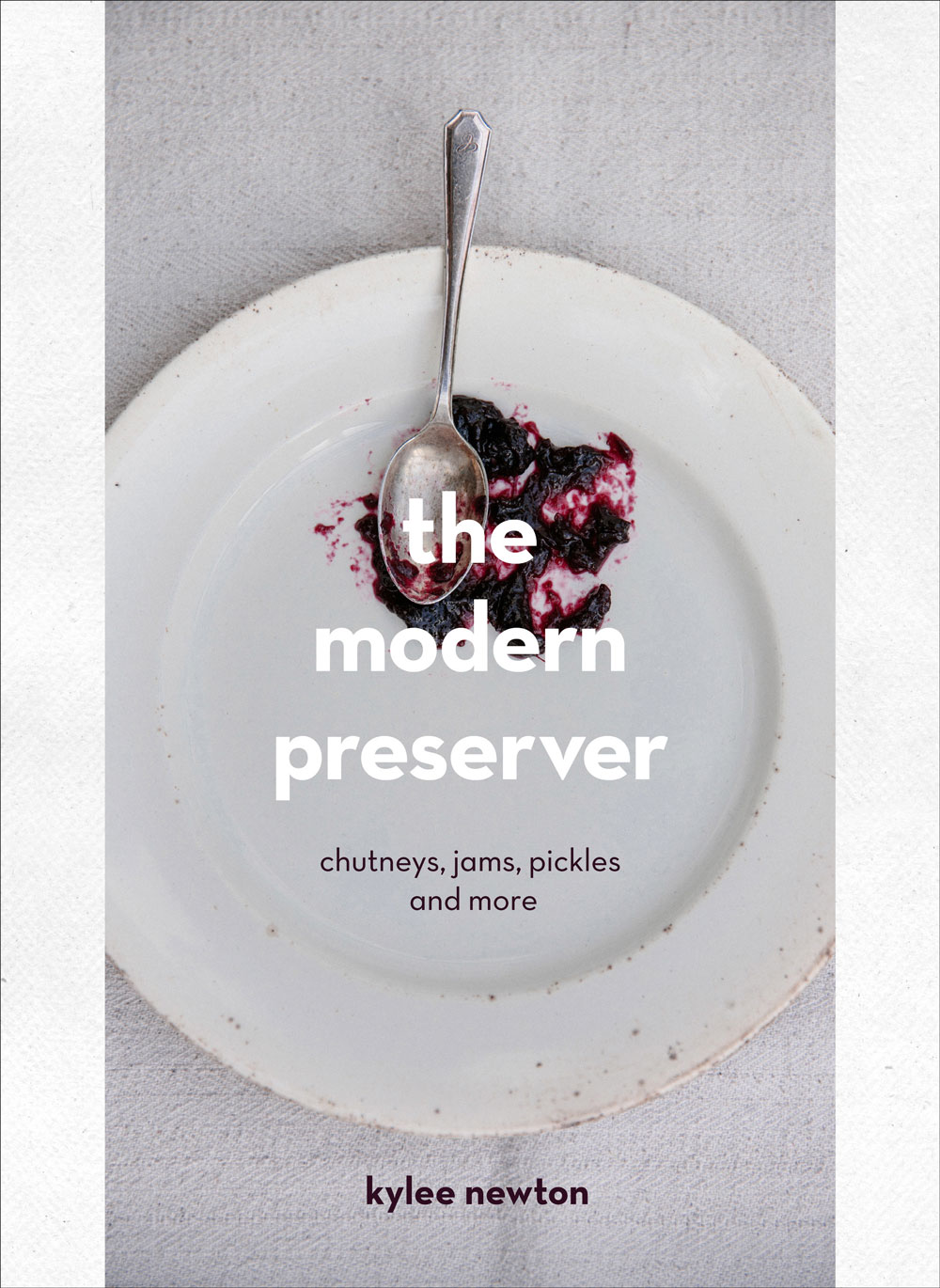
What advice would you have for someone who is a bit intimidated by fermentation?
People are intimidated by fermentation because you are working with bacteria and there’s a certain amount of care and understanding you have to have, but it’s all pretty safe. Sterilisation is important because you don’t want bacteria growing where your products are going to be, so learn the basics of sterilisation. They’re not that hard – it’s basically washing and rinsing your jar in warm water. Rinsing it thoroughly is important because soaps can contaminate the sterile environment. Then you need to put the jars into a warm oven of about 100 degrees celsius for at least 20 minutes. Bacteria won’t grow in those environments – they become stagnant or die off in certain temperatures. With pickles you don’t do hot-to-hot as such, you let the jars cool down but they've still gone through sterilisation.
So, learn the ins and outs of good health and safety techniques, then start with a pickle because it’s basically using what’s in season and creating a brine with vinegar, sugar and salt. You can infuse the brine with herbs and spices and add it to your produce – cucumber, cauliflower, beans or whatever you want to pickle. You can make up small batches and have fun experimenting with different flavour combinations and then make bigger batches.
Is that your approach to coming up with new flavours – trial and error?
Absolutely. I have my staple products but each season I try to do something exciting in my market stall depending on what fruits and vegetables are available. I try to follow the trends a bit too – at the moment people are very into pickles and fermentation. What first inspires me is the fruit or vegetable and then I think, ‘How am I going to enhance this or complement the flavours?' I just play around – it’s not about anything more than having a lot of fun and opening up your palate to new combinations and the exploration of that. Rather than just having a strawberry jam, I’d want to put Pimm’s in it. I like putting alcohol in my preserves.
There’s also a Pineapple and Cracked Pepper Jam that’s absolutely delicious – you’ve got the sweet, acidic pineapple but then the cracked pepper adds a small amount of spice to it. Sometimes the added elements are opposing or sometimes they’re really complementary and they add to the flavour. You have so many elements to play with – there are millions of combinations! I think people shouldn't be limited and I hope the book inspires that.
latest issue:
Issue #114
Autumn has arrived, and with it, the latest issue of dish, jam-packed with recipes that will have you fizzing to get in the kitchen! With a long Easter lunch featuring perfectly pink, blushing roast leg of lamb and wildly decadent baked mashed potatoes with caramelised onions, to simply scrumptious chocolate treats and sensational seasonal baking this issue has you covered - we reckon the Hot Cross Buns are our best yet! Salads make way for soothing soups, pies, puddings and our cover star beef cheek ragù with spaghetti – a must-make dinner for family and friends. With over 60 recipes in our latest issue there’s plenty of inspiration to keep you busy – and well-fed! Don’t forget to share your dish dishes with our Facebook community.

